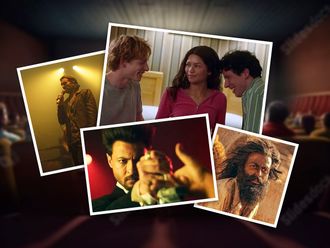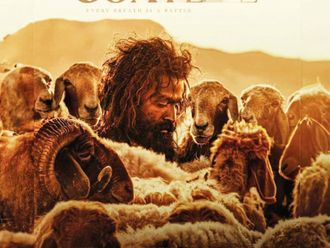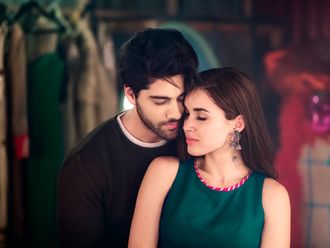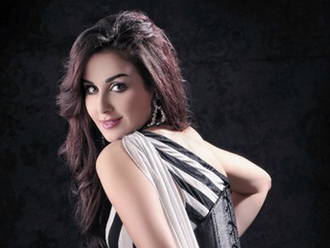Louie, returning after a long hiatus, is a rich example of what commercial television might look like if everyone involved (including the viewers) followed their best creative impulses rather than chased old business models and expected familiar genres.
You can hardly call Louie a comedy anymore, although it is often quite funny and it is about the interior life and personal travails of a working comedian and divorced father of two girls, with Louis C.K. producing, writing and directing a version of himself as the lead character. Mostly, it’s a show about the human condition, from the brilliantly morose viewpoint of a 46-year-old oaf who faces social quandaries in a world that seems increasingly narcissistic and disaffected.
Since Louie’s debut in 2010, the show has become more experimental and less concerned with plot, shucking off linear narrative in favour of short stories that might not relate to one another.
Like its expert use of a jazz soundtrack, Louie is best viewed as a long riff, in this case on mortality. By Season 3, the riffing grew so confident — and critically praised — that Louie at times could seem too idiosyncratic, too attuned to its creator’s whims. The show remained excellent, but it also sometimes had the air of a master’s thesis on self-pity.
As if to underscore its constant ability to reboot, these new episodes of Louie reward fans with subtle echoes of the first season, reaffirming the show’s strongest values: Background noises intrude hilariously on Louie’s deep sleep; a poker game with fellow comedians veers into a profane discussion of sex toys; a coffee shop is crowded with millennials who are so fixated on their phone screens that they bump aimlessly into walls and one another, like jellyfish in skinny jeans.
Louie’s reckoning with age and eventual death is never far off, whether in a moment of panic on the subway, a bizarre romantic encounter in the Hamptons or in his sudden immobility from back pain (and the unsympathetic doctor, played by Charles Grodin, who declines to treat it). In one of those great interstitial scenes from Louie’s stand-up act at his beloved Comedy Cellar, he wonders why people always ask what happens after we die.
“Actually, lots of things happen after you die — just none of them include you. You’re not anything anymore,” he observes. “But there’s all kinds of s--, there’s a Super Bowl every year . . . there’s a dog catching a Frisbee. . . .”
As his show has found itself free to explore, the real Louis C.K. has grown in stature as more of a social critic. Many of his appearances on late-night talk shows have gone viral because he has something meaningful to say — frequently a cautionary lament — about our dependence on personal technology, our constant distraction and disconnection, our inability to shut off the electronic noise and let life happen.
Louie could easily become a sermon loop on these subjects, but it doesn’t. It practises what its creator and star preaches, by concerning itself with the weightiness and absurdity of human relations. Louie works well in painful stretches of bitter silence, but it also excels at long conversations.
In a curious way, this fourth season of Louie seems to be almost having a conversation — an argument, even — with Lena Dunham’s much-discussed HBO series, Girls. Where Dunham’s Hannah Horvath drifts through and even sabotages her many encounters with New York and its inhabitants, Louis C.K.’s Louie character seems also to be serving out a life sentence of awkward situations and existential urban ennui.
They are both doing so from different ends of a spectrum; Hannah acts almost entirely from self-interest rooted in naivete; Louie acts in self-interest burdened with remorse and the beneficial invisibility of middle age.
Louie and Hannah are also unconventional beauties, with deep insecurity complexes, capable of profound acts of ugliness and selfishness toward others. Girls seems to keep telling us that this behaviour is normal and somehow formative to the journey of becoming an adult; Louie keeps telling us that this behaviour is frequently inexcusable.
In one episode, while discussing his worries about his daughters, Louie says: “If I did my job as a father, it means that they can move to a town in a day and get a bank account and an apartment and a job.” In other words, he wants them to become independent young adults who aren’t in a constant fit of enumerating and dramatically overreacting to the challenges of everyday life. So many of the lessons Louie transmits through his comedy act or in his encounters with others are the medicine that Hannah so desperately needs. Louie would tell her that life is a whole lot shorter than she imagines it to be.
Louie also exhibits a frankness about gender and relationships, sometimes to a hurtful but revealing degree. In an upcoming episode, Louie agrees to go on a date with Vanessa (Sarah Baker), a waitress he doesn’t find attractive. Eventually, they have a conversation about why straight men — even chubsters like Louie — have hang-ups about dating overweight women.
The scene is as brutally honest as (and better than) Fat Pig, the Neil LaBute play on the same subject. When Louie’s date makes a remark about her size, he reflexively tells her she’s not fat, in the way all men are trained to do. It stops her cold. “That is so [expletive] disappointing, Louie,” she says. “You know what the meanest thing is you can say to a fat girl? ‘You’re not fat.’”
The scene is an example of Louie at its best, blundering honestly into a difficult subject and delivering a profound conversation that can take its place alongside innumerable post-feminist blog entries and essays or, most recently, the speeches on confidence and self-worth given at a Ms. Foundation gala last week by actress Gabourey Sidibe and comedian Amy Schumer.
This is a long way from a half-hour sitcom about a dysthymic guy comedian and his everyday nuisances. It’s good to see that Louie intends to keep pressing our limits.












